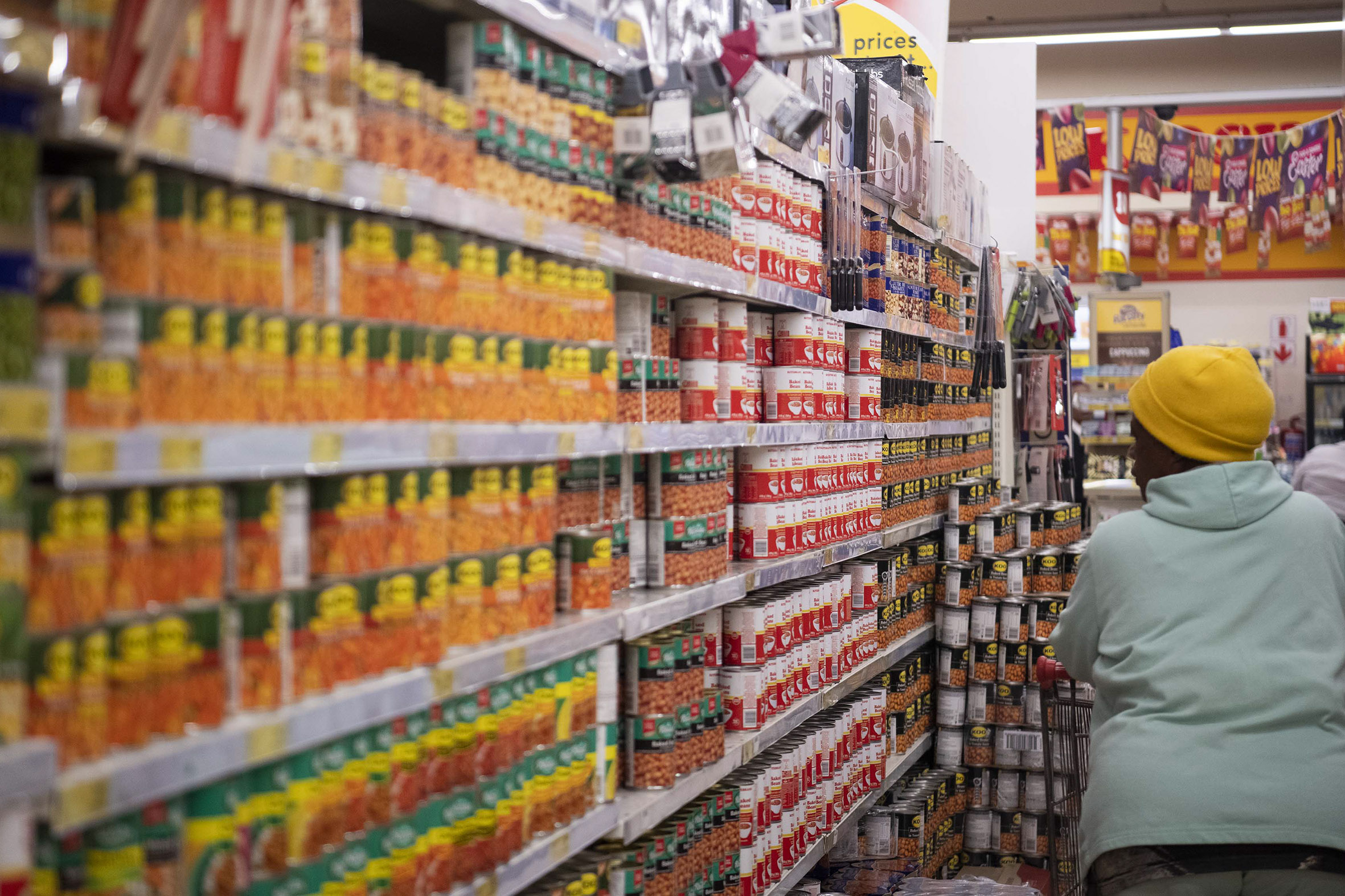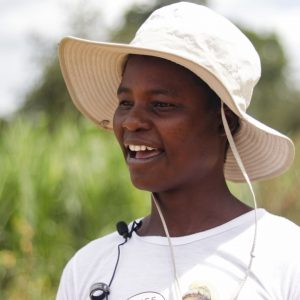No ends meat: South Africans go without
With food and petrol prices rocketing, impoverished people sacrifice nutritious food for starches that keep them full, leaving children malnourished and adults prone to disease.
Author:
13 April 2022

The rising cost of living is forcing many South Africans to cut out healthy food to make ends meet. Petrol price hikes, rocketing food prices and a looming electricity tariff increase have all added to the strain felt by a country with a record unemployment rate.
Mervyn Abrahams from the Pietermaritzburg Economic Justice and Dignity group (PMBEJD) says people are “prioritising transport to get to work, electricity, which is set to hike in June, and paying off debt as most people have to take out loans to stay afloat. Only after that do they buy food.”
The implication of having less money for food is that “people are cutting back on the amount of food they eat and they are cutting back on the quality of food they eat,” says Abrahams. “People are eating starch because it’s filling them up. It seems like a good meal, but it’s missing those nutritional aspects. They prioritise what we have in our baskets as core foods but now they can barely afford the core foods, so they buy rice or mielie meal, not both, some potatoes, some onions, cooking oil and some stock cubes or soup to give the food some flavour … If money is left over they buy the other foods, and that’s the nutritious food – your tin pilchards and fresh vegetables. So now people have dropped nutritious food because of affordability.”
The consequences for a nation consuming food void of nutritional value are devastating. It leads to stunting in children and premature death in adults from lifestyle diseases that could have been avoided had a more balanced plate of food been consumed from childhood onwards. Four of the top 10 causes of natural death according to Statistics South Africa – diabetes, heart disease, cancer in the digestive system and hypertension – are directly related to diet.
Related article:
According to the Heart and Stroke Foundation, life choices and habits, such as eating healthy food, can prevent an estimated 70% to 80% of heart disease and stroke. Ideally a good diet contains fruits and vegetables, beans, low-fat dairy, whole fibre, whole-grain starchy foods and lean fresh protein. Each of these food groups has dramatically increased in price in the past few years. The price of a 5kg pack of sugar beans has risen by 9% from R158.76 to R173.20 between February 2021 to March 2022. Russia’s invasion of Ukraine has meant cooking oil prices have increased sharply – percentage changes for 2021 compared to 2020 registered a more than 80% increase in canola oil. Palm oil rose by 72%, and there have also been big increases in rapeseed and coconut oil. South Africans can barely afford vegetable or sunflower cooking oil, let alone the healthier alternatives such as olive oil, which is already pricey.
The March 2022 Household Affordability Index tracks food price data from 44 supermarkets and 30 butcheries in the lower-income areas of Johannesburg, Durban, Cape Town and Pietermaritzburg. The most notable increases were for cake flour, cooking oil, eggs, tea, bread, maize meal, rice and white sugar.
The competition commission is looking into the fresh produce industry and its pricing. Abrahams says the PMBEJD welcomes this move, but the list of foods being investigated is too short. Products such as sugar beans are not being queried – and they should be.
The competition commission says it is essential that food prices remain accessible to all. “Price increases in essential foods can be more damaging to poorer consumers for whom essential foods shape a larger part of their consumption and household expenditure,” the commission says. “Access to healthy and nutritious food, at affordable prices, is of critical importance as the South African economy continues to struggle in the wake of the Covid-19 pandemic. The pandemic has presented challenges for global food security, affecting vulnerable households in many countries, and with impacts forecasted to remain throughout 2022.”
Hungry children
Activist Hlengiwe Gumede, 40, from the Children of Destiny at Home in Hammarsdale, KwaZulu-Natal, says it has become harder to provide a plate of food for the increasing number of people who have nothing to eat. “We provide freshly baked bread and vegetables from the garden and we buy groceries for about 15 families in need. This has increased from 10 families because of the need in communities. We buy 10kg rice, 10kg maize meal, tinned beans, pilchards, oil, brown sugar, potatoes, and soaps to bathe and wash clothes,” says Gumede.
So far the non-profit organisation is managing to stay afloat, but it is a struggle. “Money doesn’t take us as far as it used to and we don’t have enough donations to feed more people. We have to turn away so many.”
According to a new report by management consulting firm McKinsey & Company, measuring affordability in middle to affluent families, 87% of consumers describe their finances as “stretched”, and of these, 13% say they are in crisis; 32% say they find it hard to make ends meet; 42% say they have to make adjustments. Needless to say, rising prices affect the working class and impoverished the most.
Many studies over the years point to South Africa having a hunger and malnutrition problem. This was worsened during Covid-19 when the feeding scheme in public schools was closed and about 9 million children did not have access to breakfast and lunch. In 2021 the Child Gauge Report by the Children’s Institute of the University of Cape Town found that stunting affects 27% of children in the country. Last month, the Daily Maverick reported that seven babies and toddlers had died of hunger in Butterworth, Eastern Cape, since January.
Related article:
Zinhle Mzolo, 45, has run a daycare centre in Hammarsdale township for 15 years. At Nhlalakahle Creche, where she supplements the children’s diets, she is now seeing more people struggle to properly take care of their children’s nutrition. “It has become harder to have vegetables, protein and starch balanced because of … the food costs … and I can’t increase the school fees as a lot of parents are unemployed and are struggling to pay school fees as it is,” says Mzolo, adding that children who have an imbalanced diet or are hungry tend to get sick and struggle to concentrate or engage in class activities.
“If I see through the child that the parent is struggling to feed and clothe them, I do intervene and buy groceries for the family with the help of other parents donating. Recently a widowed woman lost her job and we had to intervene because the child’s state was deteriorating.”
Gumede says that even when shopping for her own family she ends up sacrificing being healthy for being full. “Things are tough sisi, you leave the house with a certain amount of money and a list of things you need and you come back with a handful of goods, so you have to start with pap and rice. The rest you will see if they fit in there,” she says.
Naledi Sikhakhane is the 2022 Eugene Saldanha Fellow in social justice journalism.
Correction, 24 May 2022: The Eugene Saldanha Memorial fellowship is supported by the SET. It was incorrectly referred to as a fund.


